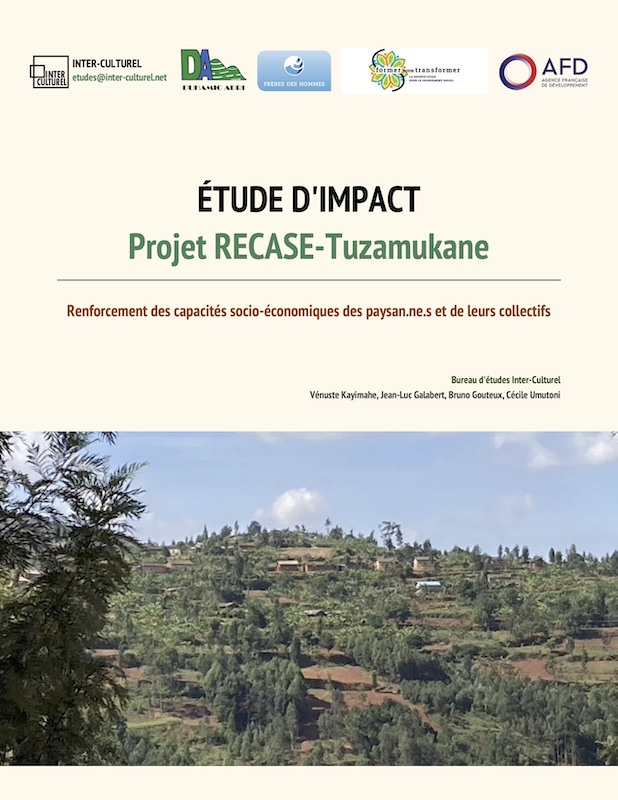As part of our study, we analysed the impact of the social transformation dynamics of the Recasé-Tuzamukane project, the aim of which is to strengthen the economic and social autonomy of vulnerable rural households and their communities.
In order to achieve this, we deployed a rigorous methodology based on a combination of tools and devices, namely individual interviews, questionnaires, focus groups and collective workshops.
This methodological approach facilitated the collection and cross-referencing of a comprehensive set of data, thereby enabling an in-depth exploration of the mechanisms underlying the observed changes.
The analysis focused on three key areas: the lives of farmers in concrete terms, the evolution of social relations within the community, and the development of the initiative capacity of the individuals or groups of farmers involved.
Concurrently, the impact analysis report was supplemented by the implementation of a system for monitoring the “field” impact of the Collectif Former pour Transformer, with the aim of providing optimum guidance for future actions.

